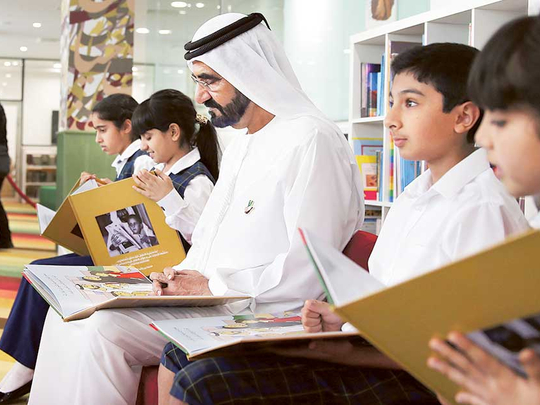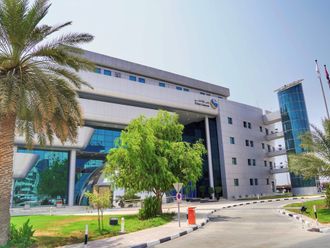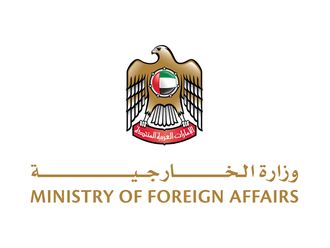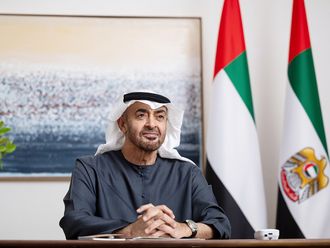
Abu Dhabi: UAE’s Reading law is a roadmap for building a civilised society, capable of change, and a world leader in development., officials say.
“The UAE’s National Reading Law, issued by His Highness Shaikh Khalifa Bin Zayed Al Nahyan, is a road map for building a reading, civilised society, capable of change, and a world leader in development,” said Hussain Ebrahim Al Hammadi, Minister of Education.
Al Hammadi added the law will promote reading as both a lifestyle and responsibility to enhance the UAE’s intellectual production and its cultural wealth, by enabling the people and providing them with the tools to do so.
“A reading society embraces civilised values, and has the intellectual capacity to drive development to take a role in building the sustainable knowledge economy, in keeping with the country’s Vision 2021,” Al Hammadi said.
In May, Shaikh Khalifa launched the Future’s National Strategy for Reading, which has a 10-year goal to create a nation of avid readers.
A Dh100 million fund, overseen by Shamma Al Mazroui, Minister of State for Youth Affairs, has been set up to encourage more people to read. The UAE’s reading strategy aims to make reading a lifelong habit for 50 per cent of Emirati adults and 80 per cent of pupils, who should read on average at least 20 books a year, with half read for children by their parents.
Jameela Salem Al Muhairi, Minister of State for Public Education, said reading and knowledge are the path to excel and compete and the reading policies are meant to build educated, conscious, empowered and tolerant people.
“The Reading Law will prepare our future generations to achieve developmental leaps, underpin our national leadership goals, strengthen our competitiveness and achieve our future vision,” Al Muhairi said.
The National Reading Law will provide a sound basis for lifelong learning for all members of the community, and encourage the private sector to promote and support reading, she said.
Dr Ahmad Abdullah Humaid Bel Houl Al Falasi, Minister of State for Higher Educationm, stressed the law is a pioneering step that puts reading at the heart of government work in ministries and institutions to build an avid reading generation.
“Our leadership attaches great importance to reading as a means to build a knowledge-based economy and a reading society that embraces civilised values,” Al Falasi said.
The new National Reading Law, which sets legislative frameworks, executive programmes and specific government responsibilities to establish the values of reading, further reflects how human resources are prioritised as the centre of comprehensive development in the UAE, the pan-Arab Writers Union’s secretary-general Habib Al Sayegh, said.
“The law is especially important when viewed within the context of similar initiatives, including His Highness Shaikh Khalifa’s declaration of 2016 the Year of Reading, the launch of a UAE National Strategy for Reading, and others,” Al Sayegh, who is also chairman of the Emirates Writers Union, added.
The secretariat of the union will disseminate the reading law as a reference document, he said, and urged other members of the union to follow suit and enact similar legislation on reading and culture.
“Culture is, after all, one way to change in order to counter challenges awaiting future Arab generations,” Al Sayegh said.
Ahmad Bin Rakkad Al Ameri, chairman of Sharjah Book Authority, said the Reading Law reaffirms the UAE’s vision and belief in the necessity of building the nation’s human capital by investing in the intellectual and cultural capabilities of the people. It reflects their constant aspiration for a bright future built by the sons and daughters of this great nation. The law will invariably enrich the intellectual landscape of the United Arab Emirates. It will help our beloved nation take a quantum leap forward in the creation of knowledge-making industries.”
Al Ameri added, “What pleased us most about the law was that it granted employees the right to specialised reading during office hours. “At Sharjah Book Authority, we launched the first governmental reading club in the Middle East in February 2016 in line with the vision and directions of His Highness Dr Shaikh Sultan Bin Mohammad Al Qasimi, Member of the Supreme Council and Ruler of Sharjah. The initiative grants all employees across the authority’s departments and divisions half an hour every day, or two-and-a-half hours every week, for reading during office hours.”
Dr Tod Laursen, President of Khalifa University, said the reading law will create a society of critical thinkers.
“I think this is a very positive step — people who have a habit of reading tend to be better rounded and are knowledgeable about a lot of topics. One of the main things that we encourage as a university is to teach young people the ability to do research and to go beyond the professor — and having the habit of reading allows young people to understand how to systematically find information.
“I think this is something empowering — information has become increasingly important in modern society and so to enhance the ability of the average citizen to find and interpret information and to be able to accept it is definitely something that is important and worthwhile to invest in,” he added.
Laursen also noted that in the age of the internet, with information so accessible, it was still important for books and libraries to have their place in society.
“With the internet generation and so much information available it is our job in the university to convince people that just because they Google something or find a web page on some topic doesn’t make it correct. That’s where knowing how to use a library to cross- check information and sources comes as a big benefit, with the person acquiring these skills.”












